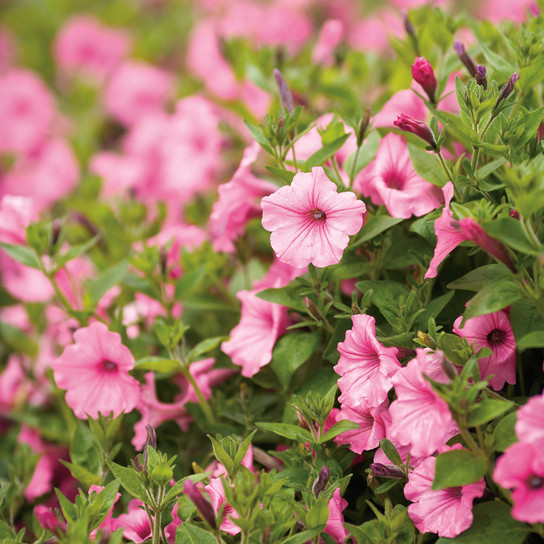
Cucumber Plants
Uses:
- Trellis
- Containers & Raised Beds
- Edible Gardens
Features:
- Large Yield
- Crisp Fruit
- Bush & Vining Types
- Adaptable & Easy
Sunlight:
- Full Sun
- 6+ Hours of Direct Sun
Cucumber plants are warm-season annuals that are easy to grow, regardless of your experience level. A single plant can produce more than 10 cucumbers a season, and the fruits have many uses, from pickling to beauty products. Bush types are perfect for containers and small spaces, while vining types readily cover a trellis, making harvest time a snap.
About Cucumber Plants

Garden Cucumbers
Himalaya to Northern Thailand
Edible Plants
Herbaceous
2 - 11 (Annuals)
Gold/Yellow
Summer
Climbing, Spreading
Bees
Heat
Disease-Resistant Varieties
Where To Plant Cucumbers In The Garden
Cucumber plants are renowned for their rapid growth and high yield, making them a staple in many home gardens. They produce elongated, green fruits that are crisp and refreshing, ideal for fresh consumption or pickling. They come in bush or vining forms, each offering unique space-saving or high-yield benefits. Their climbing vines can be trained on trellises, optimizing space and improving air circulation, which reduces the risk of disease.
Whether grown sprawling on the ground or trained upward, these subtropical vegetables perform well in sunny beds or raised platforms. When space is limited, you can take advantage of their climbing habit and guide them onto supportive fences or trellises. Placing mulch beneath the vines or employing black plastic can help keep weeds down and soil moisture high. Additionally, you’ll find that smaller pickling varieties thrive as easily as the larger slicing types in a range of garden setups.
Cucumber Plant Care
Begin planting once the soil warms to about 60°F and the danger of frost has passed, sowing seeds or setting out transplants in well-amended, slightly acidic soil. Provide a balanced fertilizer upfront and consider a side-dressing of extra nitrogen once vines begin to run. Aim for consistent watering—about an inch per week—to keep fruits from becoming misshapen or bitter. Position your plants in a spot that receives full sun, and remember that decent airflow helps minimize leaf diseases.
Promptly picking mature cucumbers encourages more blooms and extends the crop, so check vines often during peak season. Prune any damaged or diseased leaves, but otherwise, cucumber vines need little trimming. Most types can be stored in a cool, humid spot or the refrigerator for roughly a week, although fresher is always tastier. Watch out for potential issues like cucumber beetles, bacterial wilt, or mildew, and remove overripe or yellowed fruits so they don’t sap energy from the plant.
Learn More About Cucumber Plants

Growing Cucumber Plants in Pots
Choose a pot large enough to hold at least several gallons of growing medium, ensuring good drainage. Fill with a loose, rich mix, and add supports like a cage or trellis if growing vining cultivars. Keep the pot well-watered, checking often since containers dry out faster than garden beds, and give periodic feedings to maintain strong growth. With attentive care, a patio or balcony can yield a bountiful supply of crunchy cucumbers all summer.

Cucumber Companion Plants
Crops or ornamentals grown beside cucumbers need full sun, evenly moist, nutrient-rich ground, and room for the vines’ cooling shade. Low-blooming petunias add color to the bed and lure hoverflies. Use towering sunflowers as living trellises to draw bees and add biomass. Beneath the lattice of stems, oregano’s aromatic foliage confuses aphids yet still invites pollinators, and quick-maturing lettuce exploits the midday shade to yield crisp leaves long after other greens have bolted.











